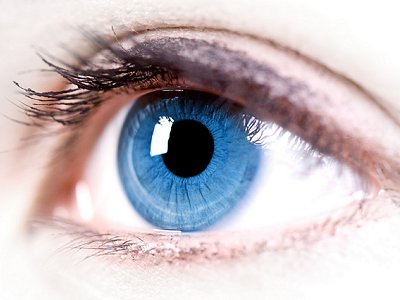
THOSE WHO HAVE EYES TO SEE
True healing comes when people are restored to their rightful place in the community, which should be a guiding principle in our support of disabled people.
The Church is sometimes accused of insensitivity to disabled people. At a practical level, until recent legislative changes compelled a new perspective, it has been reluctant to address the needs of people who do not find it easy to worship in old and cluttered buildings. In a more disquieting way, some of its members have, from time to time, seen the disability as a challenge which faith must overcome, without any empathy for the object of their pity.
The account of the healing of Bartimaeus tells a different story.
In Mark 10:46, Jesus was leaving Jericho, his business done. He was constantly surrounded by swarms of people who wanted to live in this reflected glow, eager for something spectacular to happen. Crowds like this tend to be unsympathetic to those who get in their way – and so it proved. Bartimaeus was poor and blind. As has usually happened in history, the disability made it impossible for him to make a living and so became aggravated by poverty. He was also reliant on others to interpret the world around him, which was how he discovered Jesus of Nazareth was passing. He began to cry out: ‘Son of David, have mercy on me!’ The crowd did not want a demented man on the fringes ruining the momentum of Jesus’ entourage but Bartimaeus was not to be deterred. His embarrassing persistence paid off when Jesus stopped in his tracks and called him.
What happens next is easily missed, but possibly more important than the healing itself. Jesus does not presume to cure him of his blindness; instead he asks Bartimaeus: ‘what do you want me to do for you?’ From a lifetime of being told what to do and where to sit, Bartimaeus is suddenly propelled into the white spotlight of the attention of the Son of God, who promptly hands him the script: ‘What do you want, Bartimaeus?’ It was a subtle and moving act of empowerment. Bartimaeus was at last in control. He knew what he wanted. Jesus knew what he wanted – everyone guessed he wanted his sight back – but the choice was his alone.
Jesus here showed a deep sensitivity to this blind man’s corroded personal dignity and began his restoration as a human being. On being cured, Mark says that Bartimaeus followed Jesus on the way. No-one had to help him, he could see where he was going. We often speak of healing as it is just something that happens to the body. The truth is deeper. Wholeness comes when people take their rightful place in the community, using their gifts and fulfilling their potential before God.
The story may be placed in Mark’s Gospel for a reason. Just prior to leaving Jericho, James and John had been arguing about who was the greatest in the kingdom of God. When the other disciples overheard them, it led to an unseemly jostling of egos which Jesus had to sort out. It is as if Mark is saying to his readers: the disciples of Jesus could see with their eyes but were blind in their hearts, while Bartimaeus was blind in his eyes but could see in his heart that Jesus was the Messiah.
Sometimes in politically correct language, disabled people are described as ‘differently abled’. This is not as daft as those who scoff would like to believe, for blind people learn to see with their ears and hands while deaf people learn to hear with their eyes. Bartimaeus saw the truth before many of those around him who had perfect vision.
The culture of the modern Church should be open to disabled people, which means listening to their stories and taking their contribution seriously. Many church members who are disabled have become so through advancing age, which places emotional, physical and spiritual strain on both them and their carers. But what of those who are disabled from birth, like Bartimaeus? It is unsettling, and perhaps telling, that there are proportionally far fewer of them in our congregations.
POPULAR ARTICLES

Obama's Covert Wars
The use of drones is going to change warfare out of all recognition in the next decades.

Through A Glass Starkly
Images of traumatic incidents caught on mobile phone can be put to remarkable effect.

What Are British Values?
Is there a British identity and if so, what has shaped the values and institutions that form it?


